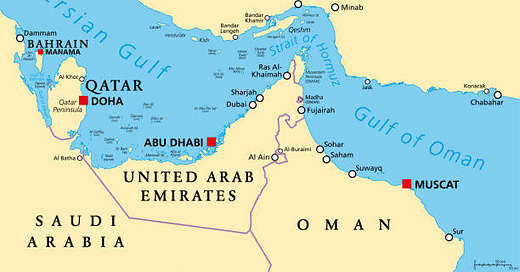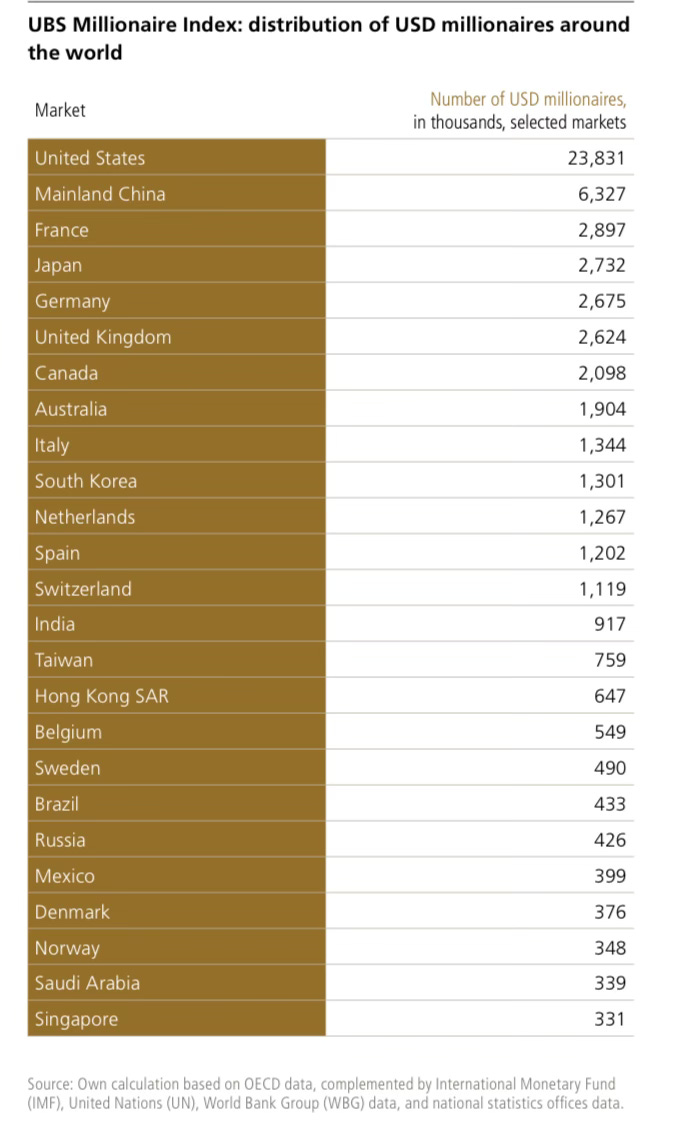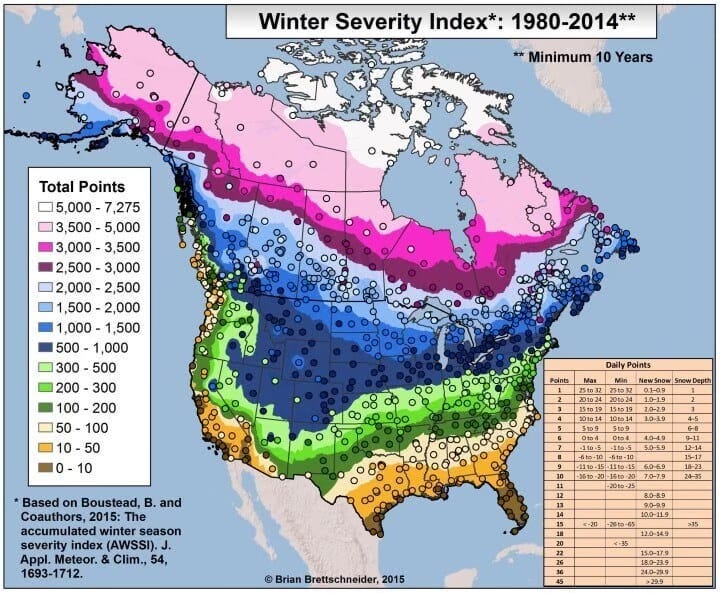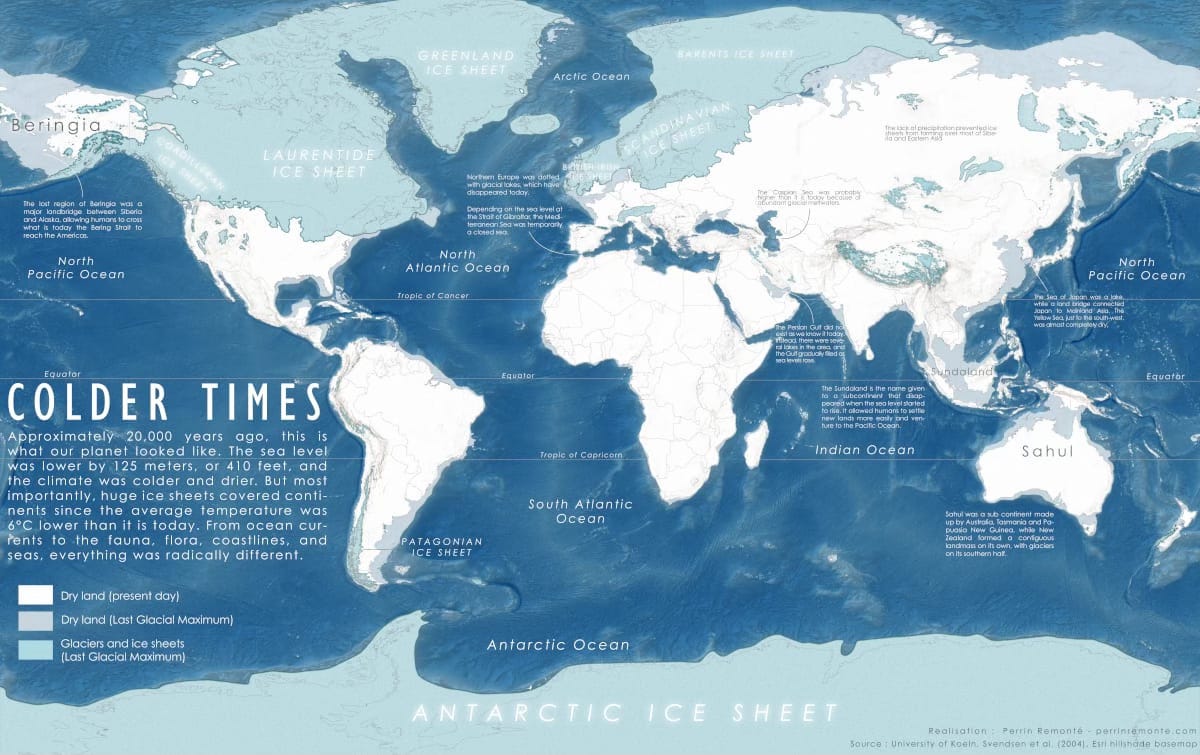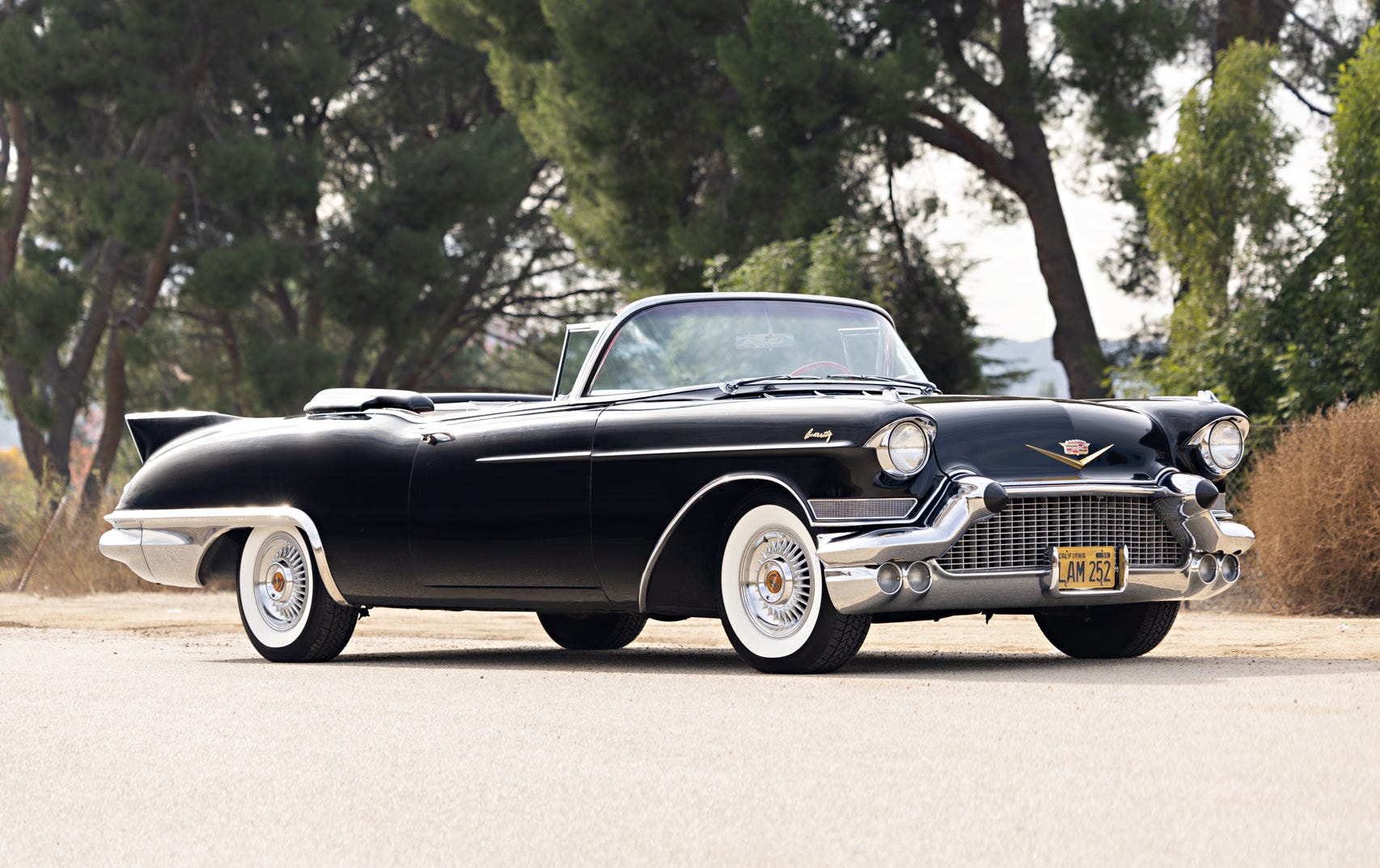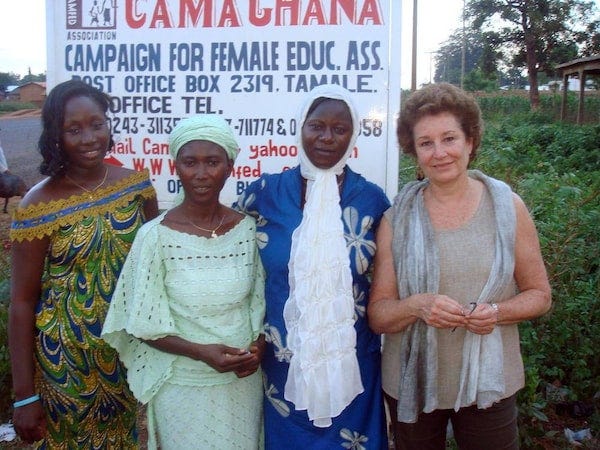Oil Price, New Millionaires, A Car Crash, Thoughts of Winter and a Generous Woman
June 23, 2025 Volume 6 # 12
Oil Price
Oil prices up in Sunday trading after the bunker busting attack by the United States on Iran’s underground nuclear site. Iran could close the Strait of Hormuz.
About 20% of the world’s oil and gas passes through the Strait of Hormuz which is just 34 miles or 55 kilometres wide at its narrowest point. Easy for Iran to shut it down with just a threat of attacking tankers or laying mines.
About 33,000 ships a year go through the Strait of Hormuz, carrying oil and natural gas from Kuwait, Saudi Arabia, the United Arab Emirates, Iraq and of course Iran.
There’s Nothing Surer…
The rich get rich and the poor get poorer, say the lyrics of the 1921 Vaudeville hit, Ain’t We Got Fun. But according to the latest Global Wealth Report from the Swiss Bank UBS, many people around the world are getting richer. China and the United States have the most people with assets of $1-million or more.
There were 688,000 new millionaires last year, with a millionaire being defined as someone with a million US dollars in liquid assets, not counting real estate or other assets. UBS says there is a huge growth in Everyday Millionaires, people with assets between one and five million dollars. There are 52-million of those low-end rich people around the world.
Where the millionaires live.
According to UBS there are 60-million people worldwide with assets of US1-million +.
The Report is 50 pages long and a fascinating read. Click here.
It’s the First Week of Summer: Winter Awaits
It was oppressively hot in parts of Canada and Friday was the longest day of the year in the northern hemisphere. Six months from now, the opposite. Listening to the weather on the CBC, someone mentioned snow somewhere in the Rockies.
The Ice Age: Not that Long Ago
Twenty-thousand years is a blip in the age of the Earth. If those 4-5-billion years of were measured as one day, 20,000 years would be about one third of one second.
So, if right now is midnight, the Ice Age was 11:59: 59.62
Older Cars: Beautiful but Dangerous
American, British and French cars from the 1950s and 1960s are much better looking than they are today, to say nothing of the best of Italian and German cars. It was the golden age of design that produced this 1957 Cadillac El Dorado Biarritz.
Good looking but more difficult to drive and not as comfortable as the rolling living room that I drive today. And not as safe. The 1959 Chevrolet— a close General Motors cousin of the top of the line Cadillac— was a lot better looking that the boring 2009 Chevy Malibu. But older cars were killers in a head on collision.
Car Crash
Take a look at the video. It is a test by the Insurance Institute for Highway Safety. No one survives in the 1959 Chevy, or a Cadillac. It shows how safety rules produced more boring but safer cars.
Click here to watch the test car crash
Essay of the Week
An obit I wrote for the Globe in 2014. The only time I could get away with using the phrase Poule de Luxe. She said it, I didn’t.
Fiona Eberts combined the traditional role of a mother and wife of a successful man with a radical volunteer career in Africa helping educate some of the poorest women in the world. She was married for 44 years to the late Jake Eberts, the successful Canadian film producer, and the couple used their resources and influence for a number of causes.
In 2001 Ms. Eberts read about an African charity, Campaign for Female Education, Camfed. Its goal is to educate young women in rural Africa, since few of them went to school, that privilege reserved for their brothers. Ms. Eberts was living in Paris at the time and took the train to London then Cambridge to meet with Ann Cotton, the woman who founded Camfed in 1993.
“Soon Fiona was travelling with me to Ghana, Tanzania and Zambia,” said Ms. Cotton from her home in Cambridge, England. “She was very adventurous. I remember travelling in southern Africa and our plane made an emergency landing. We didn’t know what country we were in. Fiona walked into a nearby building and was soon chatting with some local women and turned up with toasties for us to eat.”
Fiona Ebert, right, served as head of the charity, Camfed, which focuses on girls’ education and helping women start businesses.
The charity says it doesn’t expect to find instant solutions to rural poverty in Africa. Its objective is to find long term solutions and it sponsors mostly girls—though some boys – through primary and secondary school and in some cases university. They also teach women how to start and run their own small businesses and arrange grants and loans.
“Fiona was a great story teller and she taught me a lot about story telling,” said Ms. Cotton, who uses interesting stories about the work her charity is doing to raise money in the United Kingdom, Canada and the United States. “She saw stories everywhere.”
Ms. Eberts became chair of Camfed in 2004 and used connections to raise money and awareness for the charity. Her husband had been an early backer of Jeff Skoll, the founder of E Bay, and he soon became a major donor to the charity through his foundation.
“She had a generous and spontaneous heart that infused the way she lived,” said Ms. Cotton. “I remember we were in Tanzania talking to a woman whose granddaughter we were educating. She indicated she admired the colourful scarf Fiona was wearing and she took it off straight away and gave it to her.”
Ms. Eberts became involved in other projects in Africa, including helping start a plantation in north-eastern Ghana to grow Moringa. The project combined two of her interests: poverty in rural Africa and alternative medicine.
“She wanted to encourage independence for the women growing the plant and she believed it was nutritious and had medicinal qualities,” said her son Alexander Eberts. “The experience of working with Ann Cotton in Africa changed her life.”
Fiona Louise Leckie was born in Weybridge, a suburb of London, England, in October of 1946 soon after her parents returned from spending three and a half years in Japanese internment camps in Burma and China. Her father, John Leckie, worked for a British insurance company in Singapore and after the war started enlisted in the British army. He was captured when the Japanese overwhelmed British forces in southeast Asia in December of 1941. Her mother, Mary-Lou Newman, was captured in Singapore and interned in a camp in China.
After the war John wrote a letter to Mary-Lou proposing marriage and asking to meet him in Sydney, Australia. She managed to get there aboard one or more tramp steamers and they were married in late 1945. They returned to England where Fiona was born but were soon back in Asia.
Alexander Eberts remembers his grandparents were never bitter about their time in the Japanese internment camps. “They never had any animosity and I think that attitude percolated through to my mother,” said Mr. Eberts from the family home in Quebec’s Eastern Townships, where his parents spent several months every year.
Fiona Leckie spent her childhood in Hong Kong and Manila where her father worked. As a young girl she was sent to a boarding school in Switzerland.
She was working in Brussels when friends set her up with a young Canadian banker, Jake Eberts. When he was offered a transfer to New York the firm said they would pay to bring his wife but not his girlfriend and the two married in 1968.
Mr. Eberts was working in finance, raising money through stock and bond issues, when he was approached to finance a movie about rabbits. The firm he was working for wasn’t interested, but said go ahead and try it on your own if you like. He did.
Watership Down was a huge success and Mr. Eberts soon founded a production company, Goldcrest Films with backing from the Pearson Group, the British firm that owns part of The Economist among other things. He went to produce about 50 films, which won 37 Oscars, including Gandhi, and Chariots of Fire.
Fiona Eberts never worked in the film business, though she had strong opinions on the value of her husband’s work, and was critical of Hollywood which made films for very young audiences.
“As a result there is so little to see or rent for so many of us,” she told the Montreal Gazette. She said her husband made films for grown ups that won awards and audiences.
Her main job was raising her family and running their busy household. Though the antithesis of the type, she jokingly referred to herself as a “poule de luxe”, the French expression for a spoiled woman. As the children grew older she expanded her volunteer work and wrote articles for publications such as the Daily Telegraph on subjects such as her parents’ experiences in the Japanese camps and arranged marriages in India. Neither she nor her husband were ever Hollywood type people and never lived in Los Angeles. They split their time between Europe, North Hatley, Quebec, and Sundance, Utah.
One of Ms. Eberts’s great passions was alternative medicine. Though she didn’t abandon traditional medicine in her personal life, she believed in things such as the medicinal benefits of the Moringa plant that she helped grow in Ghana. She joined the board of NFAIM, the National Foundation of Alternative and Integrated Medicine. Because of her interest in alternative medicine she was asked to speak at a Ted Women conference a few years ago.
“Her range of interests were well researched and her positions fiercely advocated,” said her brother-in-law, Tony Stikeman, who by coincidence was born on the same day as Fiona. “She had strong views on Iraq, for example, and saw Bush and Blair as war criminals.”
When her husband was diagnosed with a rare cancer she nursed him at home until his death in late 2012. She had recently moved back to Canada full time. While visiting friends she lay down on a coach and never woke up.
Fiona Eberts was born on October 30, 1946, in Weybridge, England. She died on July 20 2014, aged 67. She is survived by her mother, who is 97, her brother and two sisters and her children Alexander, David and Lindsay.

